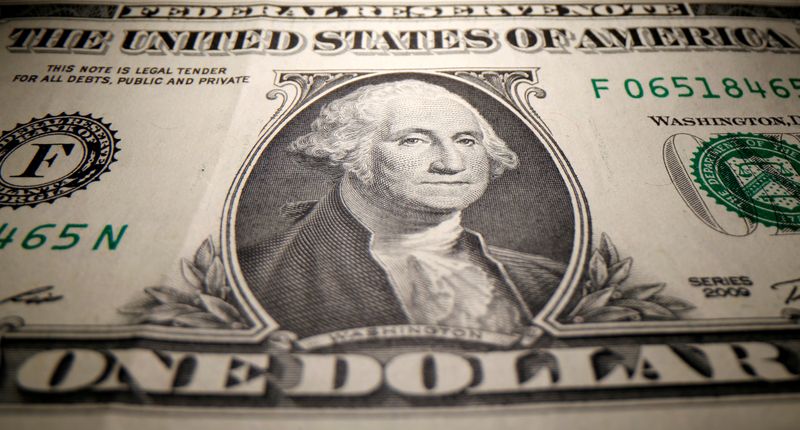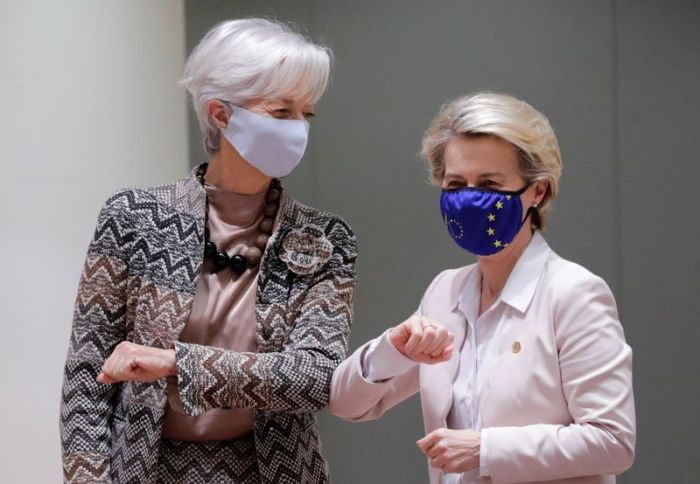NEW YORK (Reuters) – The greenback bounced on safe haven buying on Friday as risk appetite fell due to concerns over delayed U.S. fiscal stimulus amid a surge in COVID-19 cases and the increasing likelihood that Britain will exit the European Union without a deal.
U.S. officials prepared on Friday for the most ambitious vaccination campaign in decades as regulators rapidly advanced toward approving the first COVID-19 vaccine to slow a pandemic now killing 3,000 Americans per day.
But talks on a federal COVID-19 relief package have not yet been fruitful, and House Speaker Nancy Pelosi on Thursday raised the possibility of negotiations dragging on through Christmas.
“This has been a disappointing week on many fronts,” said Edward Moya, senior market analyst at OANDA in New York.
“There’s been no progress on COVID aid relief talks in DC, we have Brexit, which is once again going to go down to the wire, and coronavirus deaths and hospitalizations are still at a staggering pace in the U.S. and it’s likely to lead to more restrictive measures and lockdowns,” Moya said.
The dollar index against a basket of major currencies gained 0.23% to 90.955. It is trading just above a two-and-a-half-year low of 90.471 reached on Dec. 4.
Analysts are overwhelmingly calling for further U.S. dollar weakness as global growth picks up and with the U.S. Federal Reserve expected to hold rates near zero for years to come.
A risk to this view, however, will be if the U.S. economy surprises market participants by outperforming, analysts at Bank of America said on Friday in a report.
“A much stronger US recovery than in most of the rest of the world, particularly Europe, could be risk-off and USD positive by re-pricing the Fed,” they said.
Data on Friday showed that U.S. producer prices barely rose in November, supporting views that inflation would remain benign in the near term, while other data showed a surprise improvement in consumer sentiment early in December.
Sterling dipped 0.50% to $1.3223 and bets on further volatility in the currency grew as a disorderly Brexit appeared more likely.
Britain is likely to leave the European Union in three weeks without a trade deal, British Prime Minister Boris Johnson and European Commission chief Ursula von der Leyen said on Friday.
Johnson and von der Leyen have given negotiators until Sunday evening to break a deadlock over fishing rights and EU demands for Britain to face consequences if in the future it diverges from the bloc’s rules.
Options market moves show traders bracing for chaos, with one-week implied volatility at a nine-month high and the premium of sterling puts to calls near its highest since April as investors pay for downside protection.
The euro also retreated against the dollar, losing 0.23% to $1.2115 after Thursday’s gains, when the European Central Bank announced a new round of stimulus in line with market expectations. EU leaders also reached a compromise over a pandemic aid package.
(Additional reporting by Julien Ponthus in London; Editing by Andrew Heavens)

























